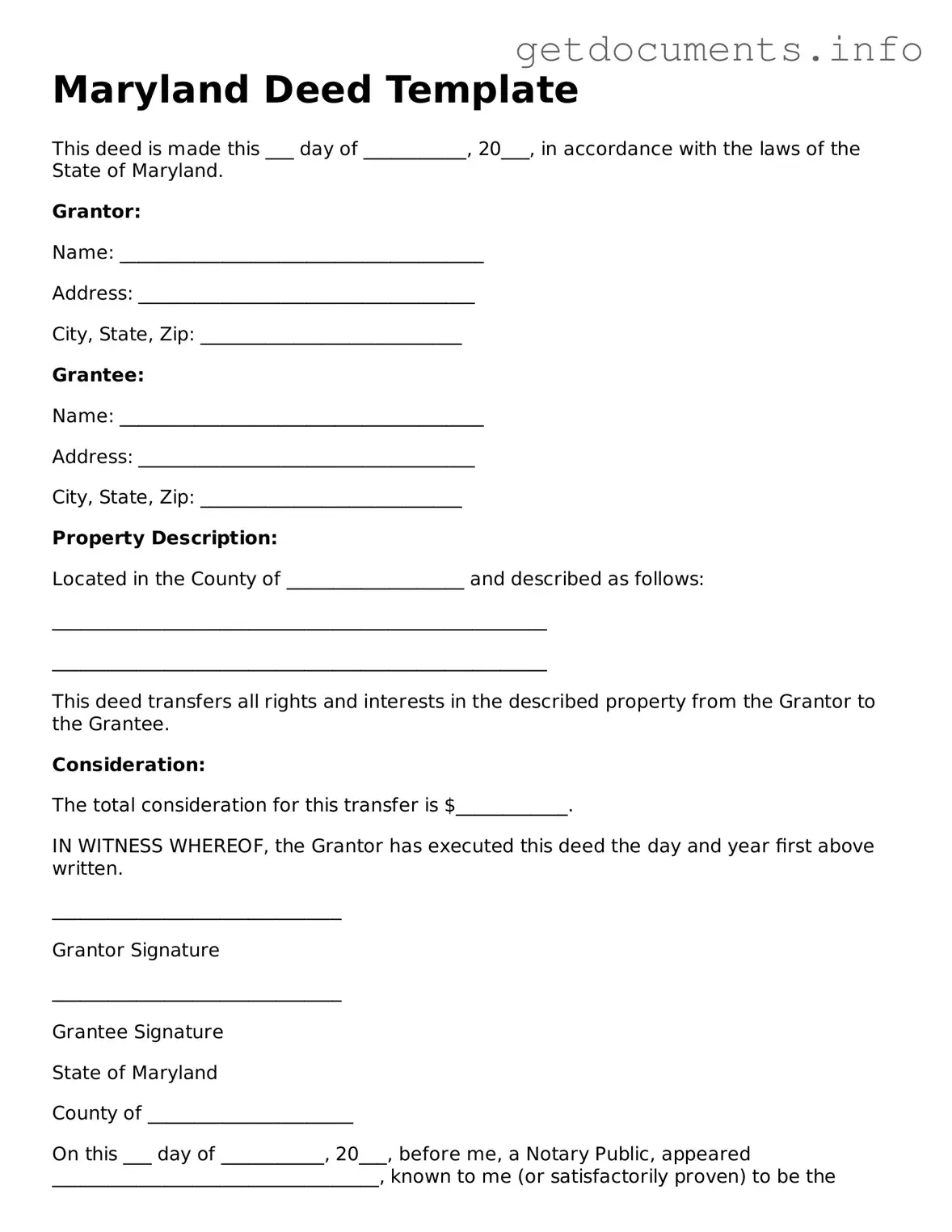Free Deed Template for Maryland
A Maryland Deed form is a legal document used to transfer ownership of real estate from one party to another. This form outlines the details of the transaction, including the names of the parties involved, the property description, and any relevant terms. Understanding how to properly complete this form is essential for ensuring a smooth transfer of property rights.
Ready to take the next step? Fill out the Maryland Deed form by clicking the button below.
Access Deed Editor

Free Deed Template for Maryland
Access Deed Editor
Got places to be? Complete the form fast
Fill out Deed online and avoid printing or scanning.
Access Deed Editor
or
⇩ PDF File
